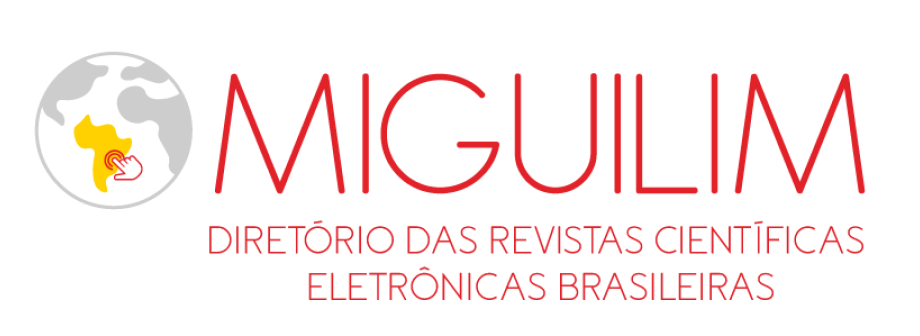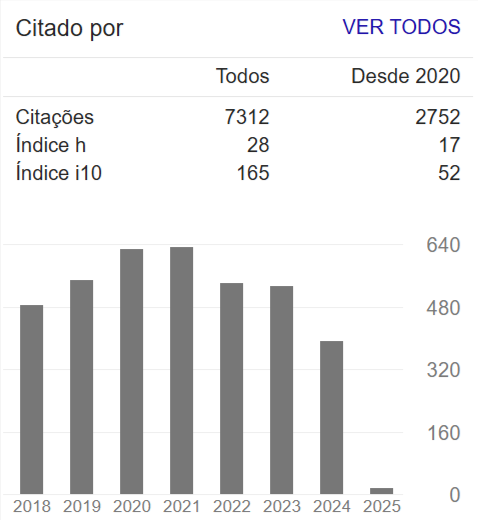Investigation of geochemical quality of water from public fountains of Salvador
Abstract
This study aims to characterize, in terms of physicochemical, bacteriological and metal concentration parameters, the water quality of public fountains in the city of Salvador (Bahia, Brazil), in order to identify its potential for current uses, contributing to the diagnosis of water quality on the public access. Therefore, campaigns were conducted in July and November of 2017 and 2018 in four fountains (Fonte Nova, Estica, Pedrinhas/Pedreiras and Express way), which were geo-referenced and analyzed physical-chemical parameters (pH, conductivity, temperature, dissolved oxygen, turbidity and total dissolved solids, salinity, sulfate, nitrate, chloride and alkalinity), bacteriological (thermotolerant coliforms) and metals (Cd, Pb, Ni, Co, Cr, Cu, Zn, Fe, Mn). The fountains showed values in disagreement with the CONAMA Ordinances 396/2008, 357/2005, and 274/2000 mainly about the pH, Dissolved Oxygen, Nitrate and Thermotolerant Coliforms parameters, indicating inadequacy for their intended uses. This information should support decision making and mitigation measures that minimize the environmental degradation of urban fountains in the city of Salvador (BA), from the adoption of recovery, revitalization and monitoring measures that enable the effective management of these water resources.

















